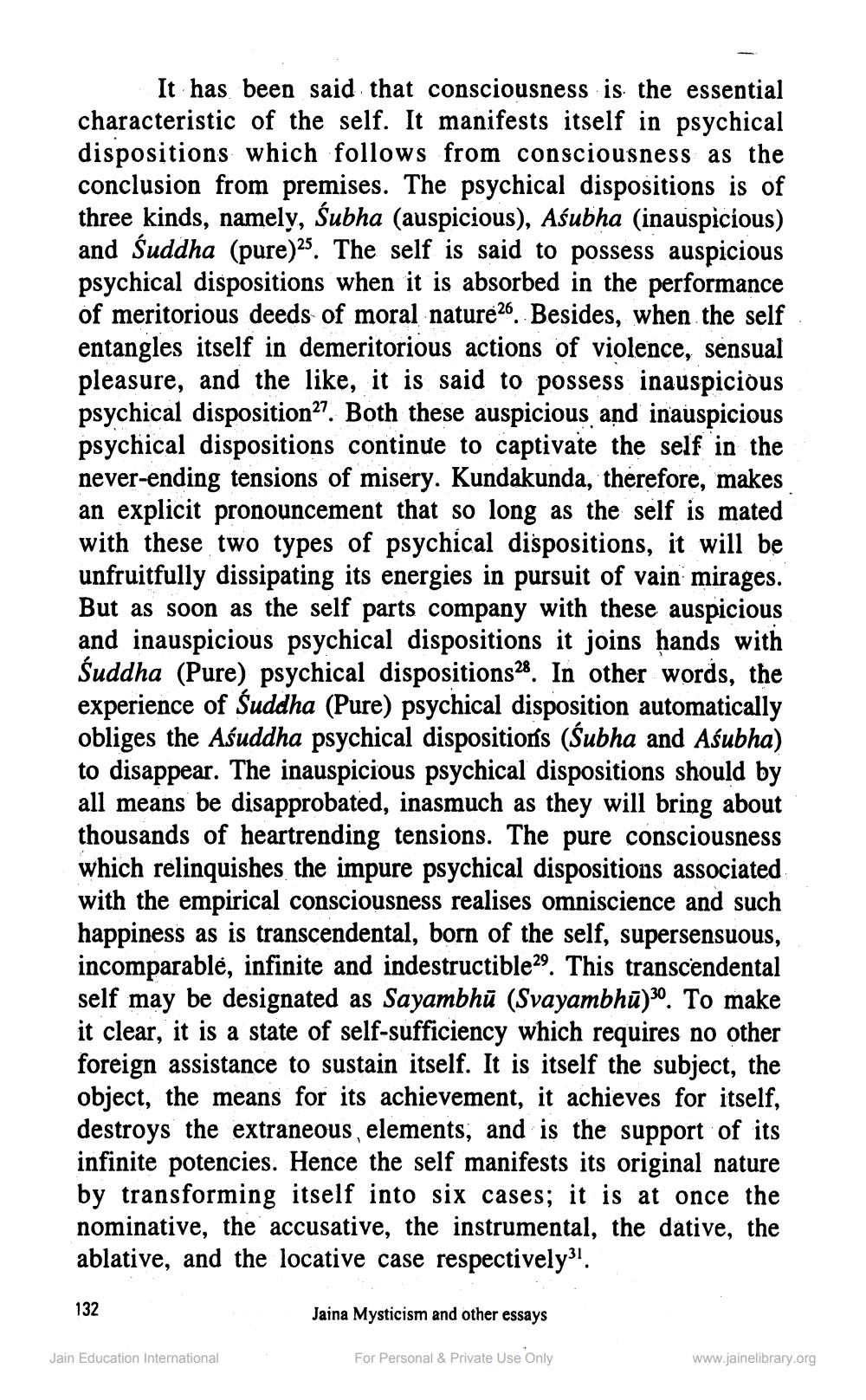________________
It has been said that consciousness is the essential characteristic of the self. It manifests itself in psychical dispositions which follows from consciousness as the conclusion from premises. The psychical dispositions is of three kinds, namely, Subha (auspicious), Aśubha (inauspicious) and Suddha (pure)25. The self is said to possess auspicious psychical dispositions when it is absorbed in the performance of meritorious deeds of moral nature26. Besides, when the self entangles itself in demeritorious actions of violence, sensual pleasure, and the like, it is said to possess inauspicious psychical disposition27. Both these auspicious and inauspicious psychical dispositions continue to captivate the self in the never-ending tensions of misery. Kundakunda, therefore, makes an explicit pronouncement that so long as the self is mated with these two types of psychical dispositions, it will be unfruitfully dissipating its energies in pursuit of vain mirages. But as soon as the self parts company with these auspicious and inauspicious psychical dispositions it joins hands with Suddha (Pure) psychical dispositions28. In other words, the experience of Suddha (Pure) psychical disposition automatically obliges the Aśuddha psychical dispositions (Subha and Aśubha) to disappear. The inauspicious psychical dispositions should by all means be disapprobated, inasmuch as they will bring about thousands of heartrending tensions. The pure consciousness which relinquishes the impure psychical dispositions associated with the empirical consciousness realises omniscience and such happiness as is transcendental, born of the self, supersensuous, incomparable, infinite and indestructible29. This transcendental self may be designated as Sayambhū (Svayambhū)30. To make it clear, it is a state of self-sufficiency which requires no other foreign assistance to sustain itself. It is itself the subject, the object, the means for its achievement, it achieves for itself, destroys the extraneous, elements, and is the support of its infinite potencies. Hence the self manifests its original nature by transforming itself into six cases; it is at once the nominative, the accusative, the instrumental, the dative, the ablative, and the locative case respectively3l.
132
Jaina Mysticism and other essays
Jain Education International
For Personal & Private Use Only
www.jainelibrary.org




